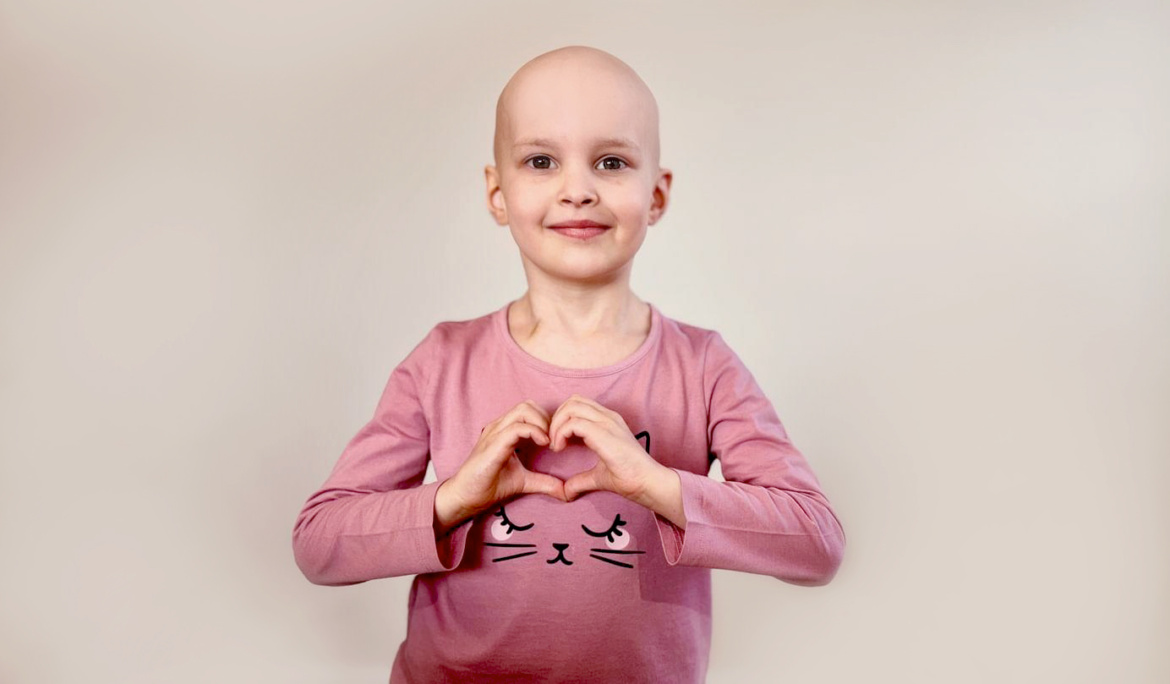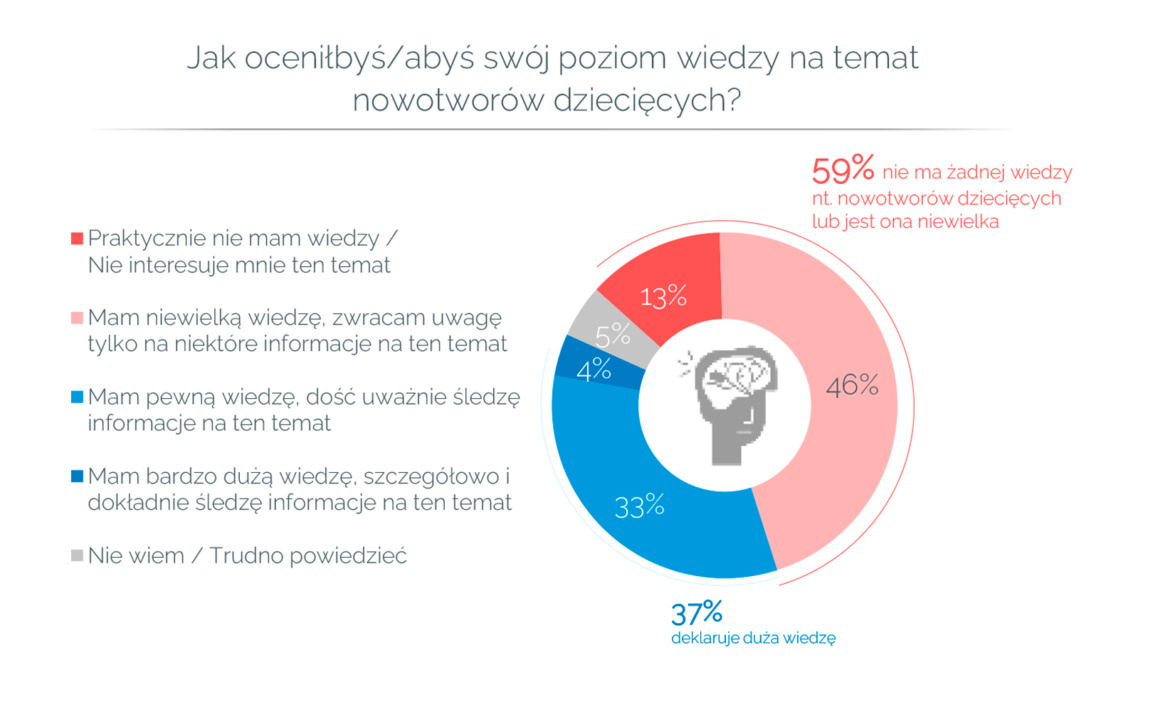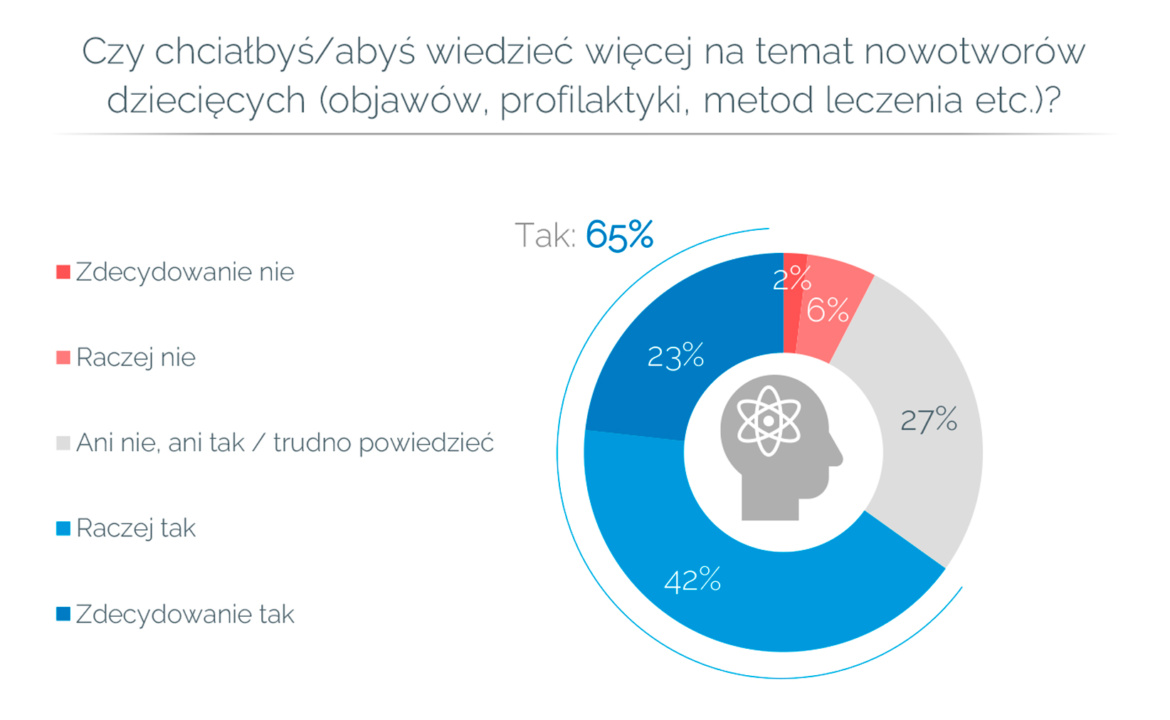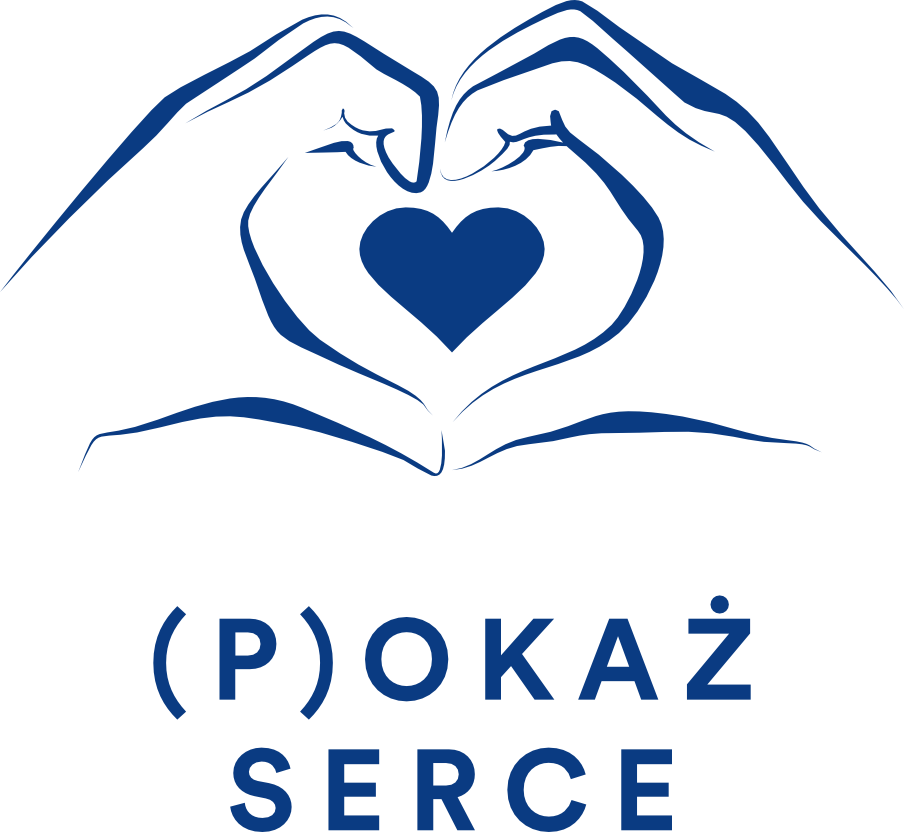According to a survey commissioned by the Department of Oncology and Oncological Surgery of Children and Adolescents at the Institute of Mother and Child in Warsaw, 59% of adult Poles declare that they do not have sufficient knowledge about childhood cancer. In turn, 20% of those surveyed are unable to name any symptom of oncological disease in children. This is why the (P)show your heart campaign is being launched, which aims not only to raise awareness, but also to initiate a public discussion about the need for prompt diagnosis and treatment of cancer among the youngest patients.

Cancer in children is still a topic that is little known to the majority of the public. Up to 1,200 new cases are diagnosed each year, meaning that one in 600 children will receive a diagnosis of oncological disease[1]. They give completely different symptoms to those diagnosed in adults, and they also develop much more quickly. As Professor Anna Raciborska, Head of the Department of Oncology and Oncological Surgery of Children and Adolescents at the Institute of Mother and Child, explains. Depending on the type of cancer, the rate of progression may vary, but usually in children the disease cells multiply much faster than in adults. Consequently, at the time of diagnosis, the disease is often already found to be at an advanced stage. It is therefore important to recognise its symptoms quickly.
[1] https://www.dkms.pl/biuro-prasowe/1-na-600-dzieci-zachoruje-na-nowotwor
What should be taken into account?
Early diagnosis of paediatric cancer can be difficult because the clinical manifestations are highly variable and depend mainly on the type, location, stage and growth rate of the cancer. The onset of the disease is sometimes uncharacteristic or very discrete, moreover, its symptoms are often confused with other, more mundane childhood complaints. Furthermore, from the study[1] conducted by ABR SESTA and SYNO Poland on behalf of the Department of Oncology and Oncological Surgery of Children and Adolescents at the Institute of Mother and Child, shows that as many as 20% of adult Poles are unable to name any symptom that could indicate an oncological disease in children, and as many as 59% declare that they do not have sufficient knowledge of childhood cancers, with as many as 13% respondents admitting to a complete lack of information in this area.

[1] Opinion poll on childhood cancer carried out in December 2023 by ABR SESTA and SYNO Poland on behalf of the Department of Oncology and Oncological Surgery of Children and Adolescents at the Institute of Mother and Child. The survey was conducted using the CAWI technique on a sample of 1002 Polish residents, representative in terms of gender, age (18-64) and town size class.
What symptoms should attract the attention of children's carers and GPs?
- There are symptoms that are worth consulting your doctor about, especially if they persist over a long period of time. These include unreasonable weight loss, prolonged fever for no apparent reason or pain that does not subside after rest, increases at night and causes difficulties in carrying out daily activities. Other symptoms that should arouse our vigilance are swellings of various kinds, especially in the abdomen or limbs, which may indicate the presence of a tumour, problems with urination or bowel movements, or persistent symptoms of infection, such as ear discharge or persistent coughing. explains Professor Anna Raciborska, Head of the Department of Oncology and Oncological Surgery of Children and Adolescents at the Institute of Mother and Child.
Poles want to know more about cancer in children
The most common oncological diseases in children are leukaemias, haematopoietic tumours or brain tumours. Solid tumours, such as neuroblastomas and sarcomas, among others, also rank high on the incidence scale among children, but in the social survey, when asked about their incidence, these types of cancer were only indicated by 9% and 10% respondents, respectively. This indicates insufficient public awareness of these types of diseases.
Significantly, in the same survey, as many as 65% respondents declared that they would like to know more about childhood cancer, of which 23% explicitly declare a desire to deepen their knowledge. It is noteworthy that respondents who have any information on the subject are also more likely to want to learn more than those who have virtually no knowledge of the topic.

Social campaign (P)show your heart
In view of the still low public knowledge of childhood cancer, as well as the interest of Poles in this issue, the Department of Oncology and Oncological Surgery of Children and Adolescents at the Institute of Mother and Child has prepared the second edition of the socio-educational campaign(P)show your heart. Its aim is to raise public awareness of oncological diseases in children and the importance of their early detection, as well as to show support for children and young people with cancer. The campaign is promoted by a spot showing the topic from the perspective of children with experience of cancer, in whom it initially instilled fear. The film can be seen online and on social media. A website has also been created www.pokazserce.plThe campaign will include a website, where anyone interested can find reliable and up-to-date information on childhood cancer, support for children and their relatives during this difficult time and addresses of treatment centres. In addition, campaign activities will be carried out on social media and anyone interested can join the campaign. How to do it? All you need to do is add a photo of your hands folded into a heart symbol to your profile, include the hashtag #pokazserce #onkoimid and invite at least one person to join in.
- Illness always comes at an inopportune time, turning the world of both the child and all those closest to him or her upside down. Parents do not always know where to start, how to support their child in this difficult moment or where to look for help. That is why we are launching the second edition of the (P)show your heart campaign, which aims to build public awareness of oncological diseases in children, the importance of their early detection and support for patients and their families. We hope that this year's campaign will draw the audience's attention to the issue and motivate them to explore the topic further. We encourage everyone to join the campaign, one simple gesture can make a difference to the health of many children. Don't be indifferent, show your heart - says Joanna Pruban, psycho-oncologist at the Mother and Child Institute.
The Ombudsman for Children Monika Horna-Cieślak has assumed honorary patronage of the campaign. Other partners of the campaign are the Sarcoma Association, the ABR SESTA research institute, SYNO Poland, the Librus educational portal, the Media Monitoring Institute S.A., the Amp Futbol Association, the Polish Psycho-oncology Association, the Stacja Falenica cinema and PKP Intercity.
Good One PR and graphic agency Diea, agency Seofly, recording studio NOBOCOTO, studio Black Photon, Pro Makeup Artist Kornelia Głaszcz were also involved in the implementation of activities for the campaign.
Media patrons of the campaign include medonet.pl, mjakmama24.pl, natemat.pl, ohme.pl, poradnikzdrowie.pl, rynekzdrowia.pl, wprost.pl, zwrotnikraka.pl, the daily newspaper Fakt and fact.pl.
The campaign is supported by Anna and Robert Lewandowski, who made a guest appearance in the spot. All information about the campaign, as well as educational material, can be found at www.pokazserce.pl

